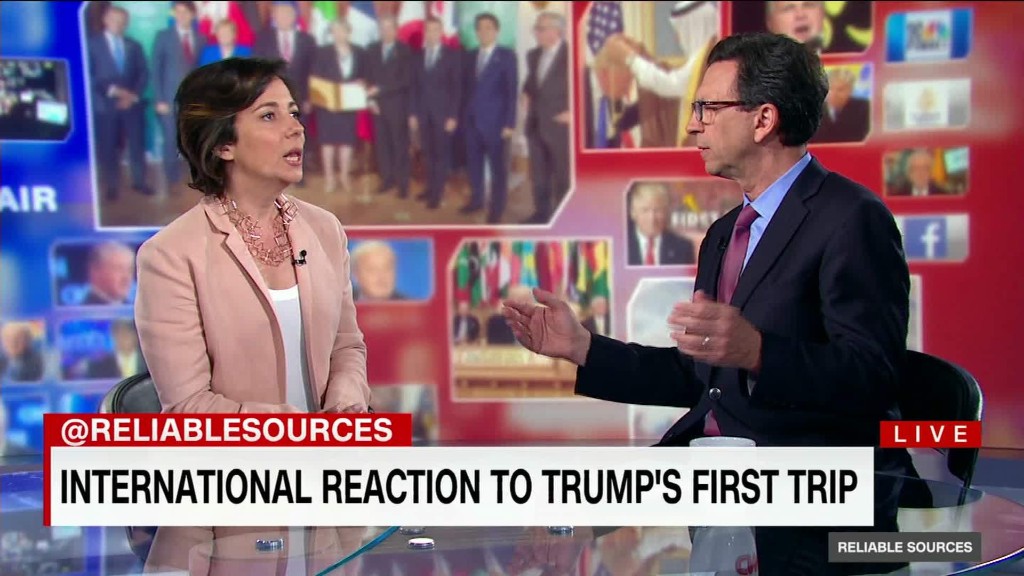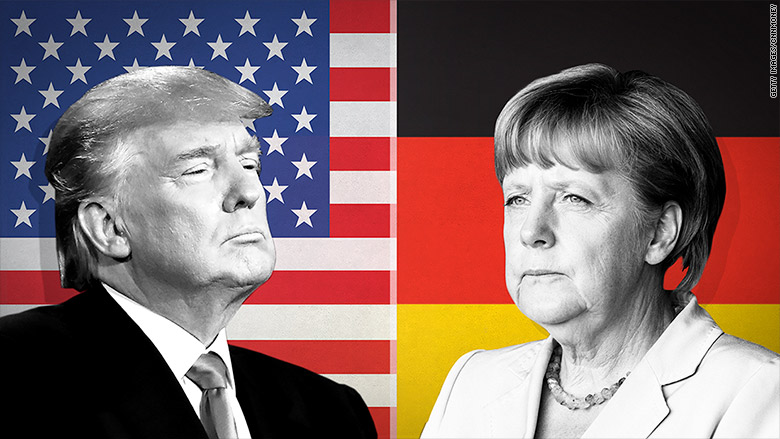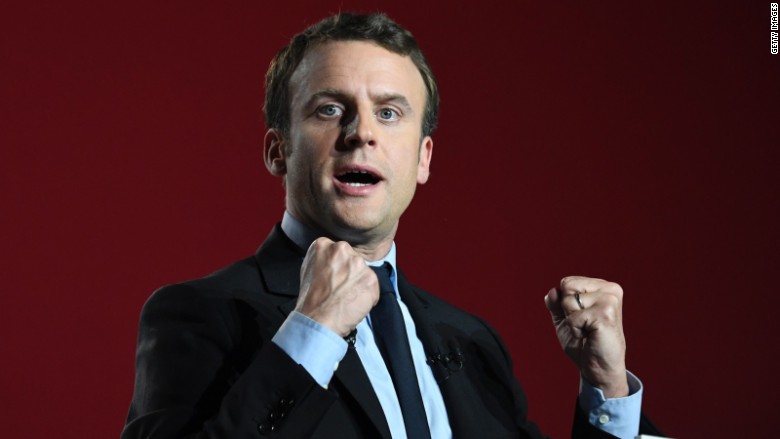
Europe is coming to terms with a new reality: The United States will no longer be a reliable partner.
Chancellor Angela Merkel said Sunday that Europe must fight for its own "future and destiny" following meetings that were dominated by friction with President Trump over climate, trade and defense. "We Europeans must really take our fate into our own hands," she told voters.
It's the latest sign that Trump, who has questioned the value of NATO and cheered Britain's departure from the European Union, is driving the continent's political leaders closer together.
But what should Europe do, exactly? EU members have major differences over how to resolve structural problems exposed by the eurozone debt crisis. Some fear the euro may collapse.
The divisions are widest between wealthy northern European nations (especially Germany) and those in the South, where public finances are strained and youth unemployment remains a problem.
Fixing the euro
Much of the consternation revolves around the euro.
The currency was introduced in 1999, and is now used by 19 countries. The eurozone has a central bank, but the bloc does not have a central government to decide on spending, tax and budget policies.

Emmanuel Macron, who was elected French president earlier this month, has a solution: deeper integration.
"The truth is that we must collectively recognize that the euro is incomplete and cannot last without major reforms," Macron told a German audience in January, arguing that the currency has benefited Berlin by acting as a "weak Deutsche Mark."
Macron wants to introduce a "fiscal union" with a common euro area budget. The funds would be used for investment and emergency economic assistance for member countries.
Germany, which boasts the region's strongest economy, has long resisted this idea, fearing that such a union would be used to transfer money to poorer countries.
Otmar Issing, a German former chief economist at the European Central Bank, has said a fiscal union is "highly unlikely."
"That proposal ignores the fact that the EU is a union of sovereign states," he wrote this year in an op-ed for CNNMoney. "Sovereignty means responsibility for taxation and public spending rests with national governments, accountable to voters through national parliaments."
Homework first
There may be hope for a compromise if Macron and Merkel -- who have quickly formed a warm relationship -- are able to bring about change in their own countries first.
Here, Macron faces the biggest challenge. He has promised to introduce policies that would reform France's labor market and give companies more flexibility in negotiations with workers.
Germany has long called for France to become more competitive. If Macron is able to deliver (he faces opposition from labor unions and some lawmakers) he'll find Berlin more open to striking a bargain on deeper EU integration.
There are already some signs of movement.
On the day after his inauguration as president, Macron met with Merkel in Berlin, where they agreed to collaborate on a roadmap that could serve as the basis for deeper integration. He also agreed not to push for common European debt (an EU equivalent of U.S. Treasuries) -- an idea with very little support in Germany.
There is also an opportunity for closer regional military coordination, especially in the wake of Trump's vacillation on the future of NATO. France is eager to increase cooperation, but Germans remain nervous about bolstering the unified country's military might and Merkel is trying to win a fourth term in elections in September.

A new era?
Britain's departure from the EU, which will be negotiated over just two years, could distract attention from reforms. The same is true for Trump, who could have more surprises in store for Europe on trade, climate and security.
In another era, Europe may have dithered until a crisis provoked change. That doesn't appear to be good enough for its two most powerful leaders.
"How can we not see that our challenges are the same?" Macron said in January, of Germany.
